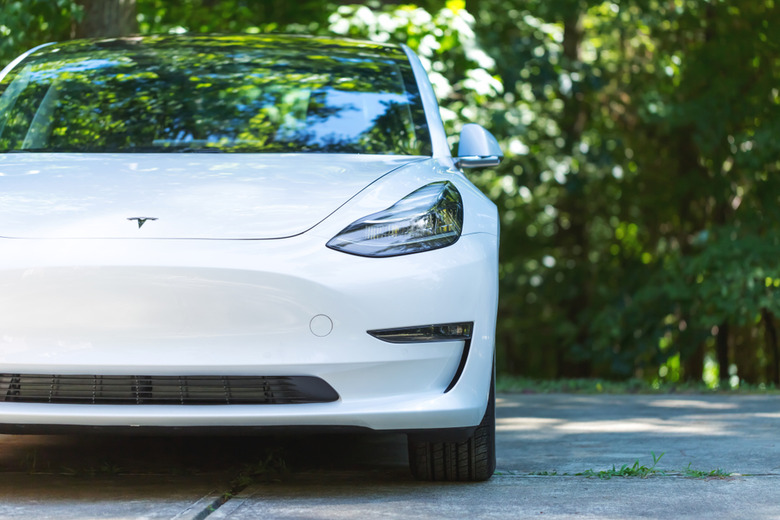Elon Musk Says Most Cars Lack The 'Soul' That Tesla Vehicles Boast
As opposed to most CEOs who singularly concern themselves with turning a profit, Elon Musk's overarching strategy with Tesla was to revolutionize the transportation industry itself and motivate others to embrace electric vehicles.
Hardly a revelation, Musk in his first Master Plan — which was penned all the way back in 2006 — said the following: "The overarching purpose of Tesla Motors (and the reason I am funding the company) is to help expedite the move from a mine-and-burn hydrocarbon economy towards a solar electric economy, which I believe to be the primary, but not exclusive, sustainable solution."
Flash forward 13 years and Musk's plan has played out brilliantly. Despite some minor hiccups with production, Tesla successfully managed to parlay the success the company saw with the Model S and the Model X to help bankroll the mass-market Model 3. Along the way, traditional automakers saw the success Tesla was enjoying and altered their product roadmaps accordingly to include EV development, with Porsche's upcoming Tacyan being a prime example.
With any number of EVs on the road today, there's no denying that Tesla still has the EV market locked down. And while that may change in the future, Musk believes that Tesla has a leg-up on the competition because rival EVs simply lack "soul."
Musk's opinion on the matter came to light during a recent interview with Motor Trend where the Tesla CEO answered a question about Tesla's seeming obsession with rolling out new Easter Eggs.
And the overarching goal is, what can we do to make you fall in love with this car? And I think the biggest thing about Tesla and the cars that we make is that this is not designed by a soulless corporation. There's not like some finance spreadsheet or something like that with some market analysis. There's none of that. Obviously we need to bring in more money than we spend, but at the end of the day we want to make a car that we love, that hits us in the heart, that makes you feel. And how many of these cars, they have no soul. They make all these cars that have no soul or no heart, and they wonder why nobody feels anything for them. Why should they?
On a related note, Musk expressed some disappointment that it took traditional automakers so long to follow Tesla's lead.
Well I don't know. It's surprising to us. I thought the industry would have had cars that are competitive to the Model S well before now because as we were talking about—the Model S debuted in 2009, and even if people thought, "Well, that's an impossible car to build," which conventional wisdom said that the Model S was an impossible car to build, and there were many articles written to that effect. But once we started delivering them to customers and they were approved by the regulators and met all of the safety requirements, it's like the Model S has got the best safety rating that NHTSA had ever tested of any car. I really expected that there would be within maybe three years or something, we'd have something that was better than the original Model S. But I guess the car industry is just fairly slow to evolve, and it didn't take electric vehicles really seriously until 2015, maybe 2014 you could say.
Per usual, Musk doesn't pull any punches, and the interview is well worth reading in its entirety.
